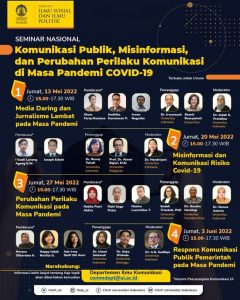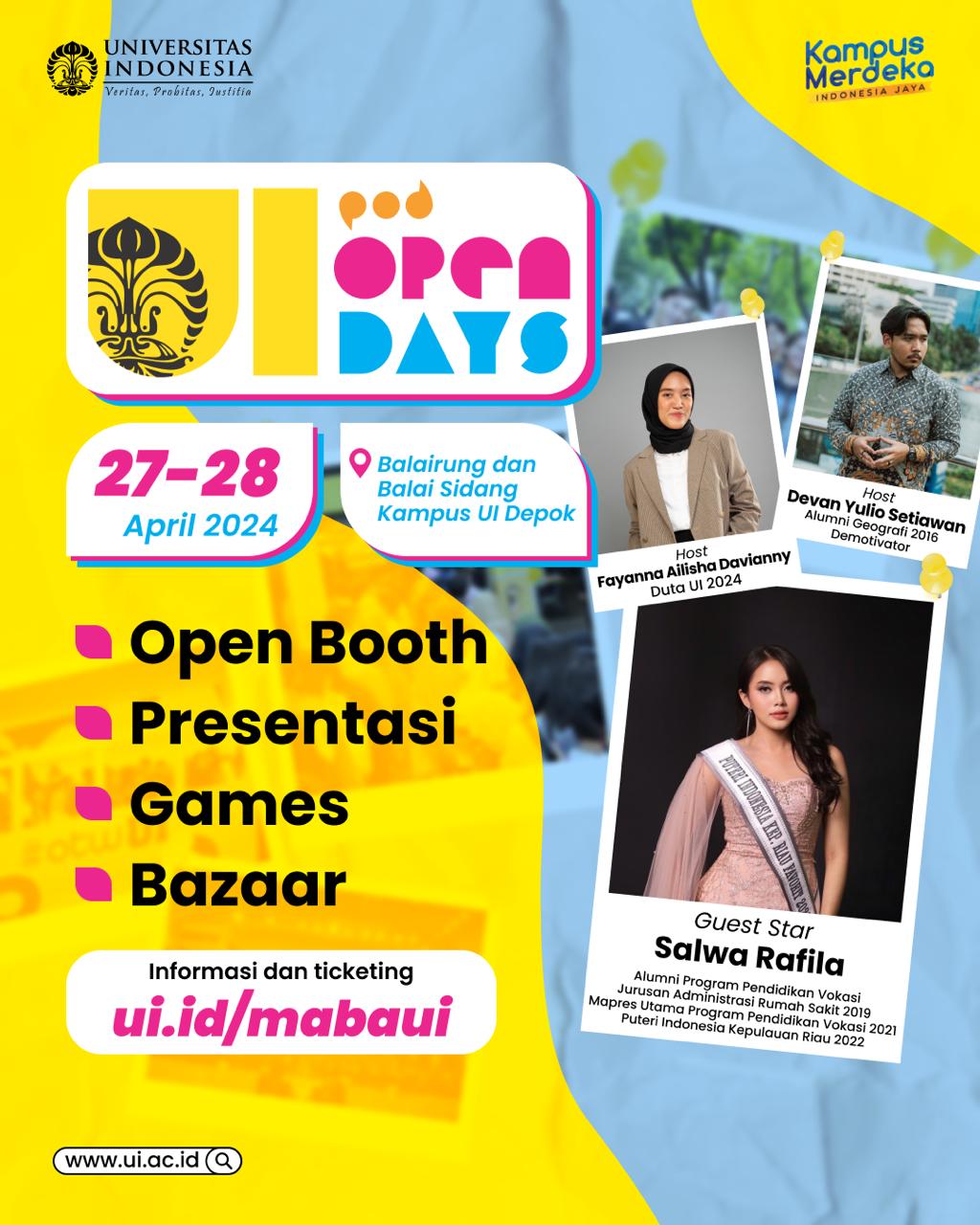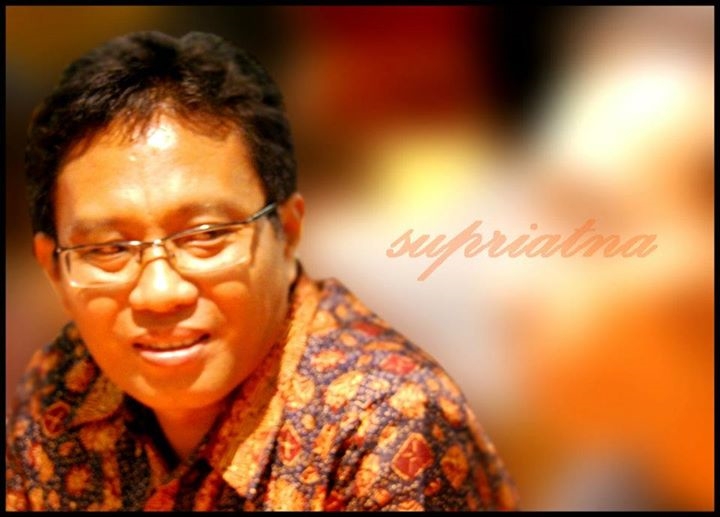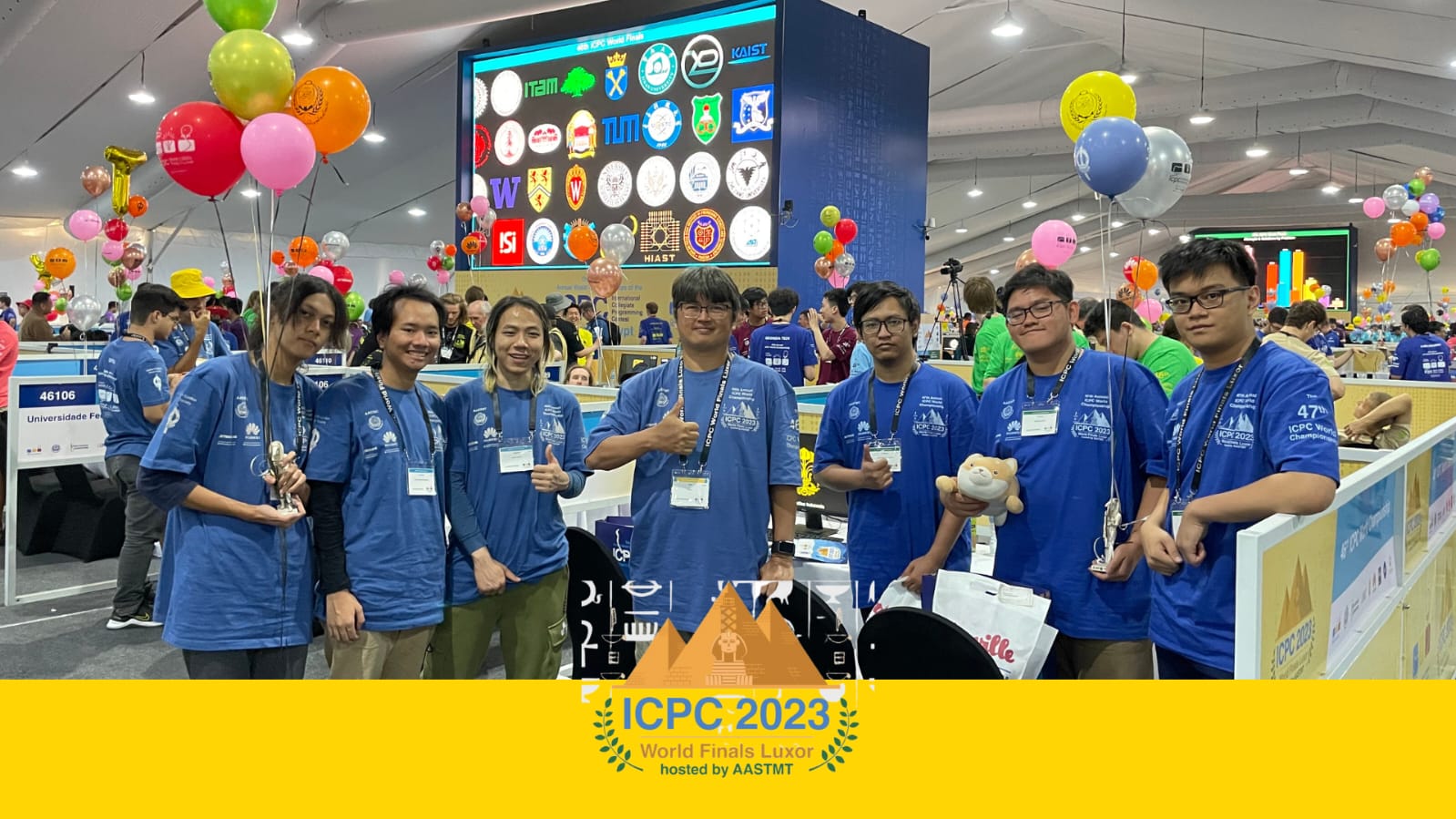
The internet tends to form a media that is quick to report rather than a media that is detailed in presenting information. As a result of the shift in online media journalism practices, many online news outlets now rely heavily on pre-packaged news from public relations materials and news agency services. In addition, the pressure to produce near real-time news online has led to the occasional loss of accuracy and even confirmation.
This was stated by Ilham Fariq Maulana, SEO content writer who is an alumnus of Postgraduate Department of Communication Science, Faculty of Social and Political Sciences, Universitas Indonesia (FISIP UI). Ilham opened his presentation entitled “Habitus pada Jurnalis Media Daring yang Menggunakan Konsep Jurnalisme Lambat” (Case Study of Tirto.id and Katadata.co.id Journalists) in a series of national seminars organized by Department of Communication Sciences of FISIP UI on Online Media and Slow Journalism during the Pandemic.
“Journalism is basically inseparable from technology because journalism itself also depends on the function of technology to help share messages with the public. The process from analog to digital changes the volume of news received by the public, the speed or velocity of its delivery, the variety of tastes, and the audience’s judgment about the truth or velocity,” Ilham said on Friday (13/05).
According to Ilham, one of the working concepts of digital journalism is data journalism. “Academics and practitioners consider that data journalism is a new news reporting practice. Data journalism requires skills such as shaping substantial news, accessing data sets, and more. If it is connected to slow journalism, it shows that slow journalism actually wants to show readers three things, which are the source of information, how the information is collected and distinguish subjectivity, and uncertainty during the fact-finding process,” he said.
“This means that the concept of slow journalism is not against the practice of airing and distributing in near real-time. But slow journalism always wants to give reflection to online media journalism and also online media in particular to consider slow mode,” said Ilham, explaining what was his thesis research.
“The choice of the concept of habits itself is based on the view that slow journalism does not only focus on newsroom style criticism which focuses on almost acceleration. The practice of digital journalism and slow journalism can be explained through the experience and understanding of the values they get throughout their lives, which is called habits,” said Ilham.
At the end of his presentation, Ilham said that habits are the results of a very long and continuous learning process. Habitus are not easily lost or not easy to change, because they grow in each individual.
The next speaker, Irwan Nugroho (Alumnus of Department of Communication Science FISIP UI), conveyed the vital role of the media during the Covid-19 pandemic. Through the media, both the government and parties interested in educating the public regarding Covid-19 can provide detailed information about health threats, decision-making, and the scientific community.
“The quality of journalism in the pre-crisis of the Covid-19 pandemic was like the media that reported the arrival of Covid-19 to Indonesia with excessive projection of fear and panic. The media was dissolved in conspiracy theories around the Corona virus that were difficult to verify, and the media welcomed hoaxes and misinformation circulating on social media around Covid-19 without a critical attitude. At the end, it is maintained, with the media starting to be critical and harsh towards the government regarding policies taken such as lockdowns, large-scale social restrictions, and so on,” he said.
As a respondent at the seminar, a lecturer at Department of Communication Science FISIP UI Dr. Irwansyah, said, “The information ecosystem is changing with journalism entering the online world, having a websiteand then entering social media. As proven by the Covid-19 pandemic, the concept of health is culturally, economically, and politically constructed. Therefore, a local understanding of health is important. It points to the need for awareness of the power of mainstream media and other information sources to preserve culturally constructed notions of health and for this information to be based on an evolving medical knowledge and understanding.”
Irwansyah also provided recommendations for journalists and their work during the pandemic. First, the protection of the independence and freedom of journalists and their work. Second, the resilience of the journalist profession and their work, including Covid-19, which is a collective memory for the nation as a provision and experience to face various more complex problems in the future.



